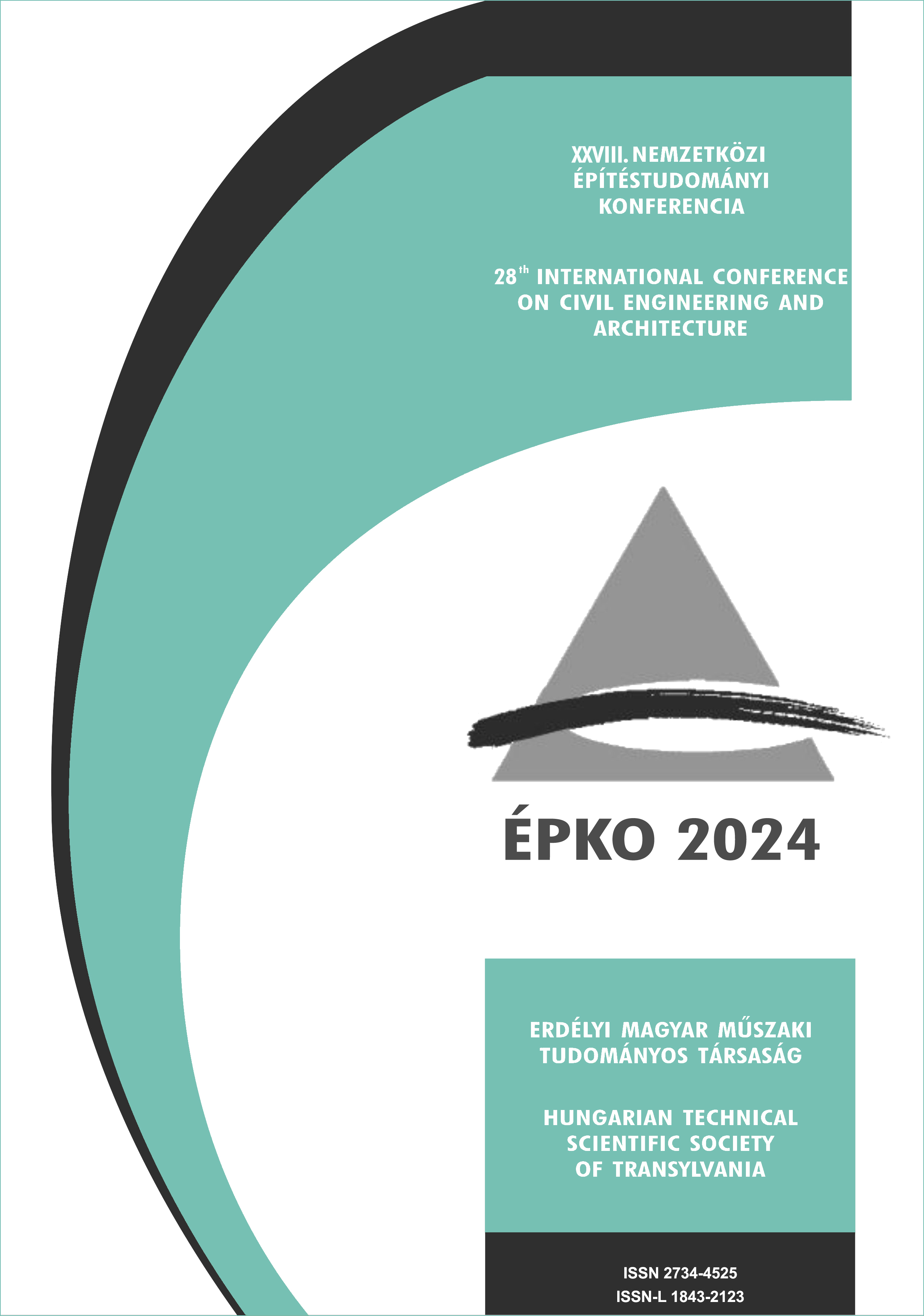Intenzív fluktuációt mutató komfortparaméterek mérése
Measurement of comfort parameters showing intense fluctuation
Keywords:
comfort theory, thermal comfort, air speed, live subject measurement, /, komfortelmélet, ruházat, légsebesség, élőalany mérésAbstract
The paper presents a thermal comfort research. During the research, the results measured with the thermal comfort measuring station and thermal manikin are compared with subjective evaluation results, which were measured with the participation of living subjects.The expected heat sensation is determined using the PMV-PPD method defined in the ISO 7730 standard. The methodology was determined for a permanent, source-free case during the procedure specified in the standard. In everyday practice, however, we often encounter cases where a physical parameter is not constant or stabilized. This could be, for example, a building with an air conditioning system. The effect of intense fluctuations in air speed is taken into account by simple averaging of the measurement data, which greatly simplifies the problem. The aim of the research is to create a calculation procedure that evaluates the effect of intensively changing physical parameters in a complex way. For the measurement, we used a universal thermal comfort measuring station (testo 400) and a measuring mannequin made in Denmark and custom-made by PT-Teknik. The measurement was made according to the ISO 7726 standard. The subjective measurements were made with the involvement of subjects, during the measurement a questionnaire survey was carried out based on the methodology defined in the ISO 10551 standard. The questionnaire was prepared in Hungarian and English after several rounds of consultation and consisted of 13 questions, mainly related to the sensation of heat and air speed, in accordance with the data protection requirements of the GDPR. The research took place at the Department of Building Mechanics and Facilities Engineering of the Faculty of Technology and Informatics of the University of Pécs.
Kivonat
Az cikk egy termikus komfort kutatást mutat be. A kutatás során a hőkomfort mérőállomással és hőbábuval mért eredményeket szubjektív értékelési eredményekkel vetjük össze, melyeket élő alanyok bevonásával mértünk.
A várható hőérzetet az ISO 7730 szabványban meghatározott PMV-PPD módszerrel határozzuk meg. A módszertan állandó, forrásmentes esetre került meghatározásra a szabványban meghatározott eljárás során. A mindennapi gyakorlatban azonban gyakran találkozunk olyan esetekkel, amikor valamely fizikai paraméter nem állandó, nem stabilizálódott. Ez lehet például egy légkondicionáló rendszerrel működő épület. A légsebesség intenzív ingadozásának hatását a mérési adatok egyszerű átlagolásával vesszük figyelembe, ami nagyban leegyszerűsíti a problémát. A kutatás célja olyan számítási eljárás megalkotása, amely komplex módon értékeli az intenzíven változó fizikai paraméterek hatását.
A méréshez egy univerzális hőkomfort mérőállomást (testo 400) és egy dán gyártmányú, a PT-Teknik által egyedileg gyártott mérőbábut használtunk. A mérés az ISO 7726 szabvány szerint történt.
A szubjektív mérések alanyok bevonásával történtek, a mérés során kérdőíves felmérés történt az ISO 10551 szabványban meghatározott módszertan alapján. A kérdőív több fordulós egyeztetés után magyar és angol nyelven készült, és 13 kérdésből állt, főként a hőérzettel és a levegő sebességével kapcsolatos, a GDPR adatvédelmi követelményeinek megfelelően.
A kutatás a Pécsi Tudományegyetem Műszaki és Informatikai Kar Épületgépészeti és Létesítménymérnöki Tanszékén zajlott.
References
ASHRAE Standard 55-2010 Thermal Environmental Conditions for Human Occupancy, Refrigerating and Air-Conditioning Engineers, Inc.
Dr. Magyar Zoltán, Dr. Révai Tamás, Thermal Insulation of the Clothing 2nd Royal Hungarian Army in Winter Campaign in the Light of Thermal Manikin Measurements, ACTA POLYTECHNICA HUNGARICA 11:(7) pp. 197-207. (2014)
Dr. Bánhidi László, Dr. Kajtár László (2000): Komfortelmélet, Műegyetemi kiadó, Budapest
CAKÓ B. HŐKOMFORT MÉRÉSEK ÉS SZÁMÍTÁSOK. Pécs. ISBN: 978-963-429-947-9 Kiadó: KomfortMűhely Kft, 2022.
W. Cui, G. Cao, J. H. Park, Q. Ouyang és Y. Zhu, „Influence of indoor air temperature on human thermal comfort, motivation and performance,” Elsevier, 2013.
S. Kawakubo, M. Sugiuchi és S. Arata, „Office thermal environment that maximizes workers’ thermal comfort and productivity,” Elsevier, 2023.
Borsos Ágnes, Zoltán Erzsébet Szeréna, Cakó Balázs, Medvegy Gabriella, Girán János, A Creative Concept to empower office workers addressing work-related health risks. HEALTH PROMOTION INTERNATIONAL 37 : 3 Paper: daac064 , 12 p. (2022)
BARNA E. A SUGÁRZÁSI HŐMÉRSÉKLET ASSZIMETRIA ÉS A MELEG PADLÓ EGYÜTTES HATÁSA A HŐÉRZETRE, PhD értekezés 2012.
S. Tanabe, K. Kimura “Effects of air temperature, humidity, and air movement on thermal comfort under hot and humid


